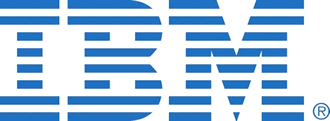 Insurers with a worldwide presence are set to spend over $100 billion this year on IT. That will gladden the hearts of vendors.
Insurers with a worldwide presence are set to spend over $100 billion this year on IT. That will gladden the hearts of vendors.
 Insurers with a worldwide presence are set to spend over $100 billion this year on IT. That will gladden the hearts of vendors.
Insurers with a worldwide presence are set to spend over $100 billion this year on IT. That will gladden the hearts of vendors.
 Apple and IBM have signed a deal over the Pad and the iPhone, reflecting greater use of the devices in the corporate marketplace.
Apple and IBM have signed a deal over the Pad and the iPhone, reflecting greater use of the devices in the corporate marketplace.
Under the deal, IBM will release what it described as the first wave of IBM MobileFirst for the iOS operating system.
The applications also support web services and big data and analytic abilities to the iPad and iPhone. IBM said MobileFirst for iOS is aimed at enterprise sized companies in banking, retail, insurance, financial services, telecomms, governments and airlines.
Customers who have already signed up include Citi, Air Canada and Spring.
Philip Schiller, a senior VP of Apple marketing, said: “The business world has gone mobile and Apple and IBM are bringing together the.. technology with the smartest data and analytics to help businesses define how work gets done.”
The apps are intended for secure environments, linked to core enterprise processes and analytics.
Apps include Plan Flight and Passenger for airlines, Advise and Grow for the banking sector; Retention for insurance companies; Incident Aware for law enforcement; Sales Assist for Retail and Expert Tech for the telecomms market.
 The accession to power by the “business friendly” BJP party in India has resulted in the software market starting to grow again.
The accession to power by the “business friendly” BJP party in India has resulted in the software market starting to grow again.
That’s according to a report by market intelligence firm IDC, which said during the first half of this year, the market grew by 10.7 percent, compared to the first half of 2013.
IDC thinks the market will continue to grow in the next five years with a compound annual growth rate (CAGR) of 10.5 percent.
Areas of growth include mobile application development and device management, security software, systems software and engineering applications.
Shweta Baidya, a senior market analyst at IDC, said that large and small to medium enterprises want to curb capital expenditure and move into the cloud.
Virtualisation and cloud players like Vmware, Salesforce and Red Hat generated good business, and database and analytics companies including Teradata, Oracle, Qlik and others saw double digit growth.
IDC provided a pie chart which shows market share in the region.
 The use of Software as a Service (SaaS) by enterprises is becoming “mission critical”, according to a survey by IT market research company Gartner.
The use of Software as a Service (SaaS) by enterprises is becoming “mission critical”, according to a survey by IT market research company Gartner.
Gartner said that cost and agility are the main reasons for SaaS cloud adoption by enterprises, based on a survey involving four countries in four regions around the world.
Joanne Correia, a research VP at Gartner, said that the most common reasons for using SaaS were to develop and test production and mission-critical workloads.
“We’ve seen a real transition from use cases in previous surveys where early SaaS adoption focused on smaller pilot projects. This is an affirmation that more businesses are comfortable with cloud deployments beyond the front office running sales force automation and email,” she said.
Of those surveyed, 44 percent thought overall cost reduction was the main reason for investment in SaaS. But CIOs and senior IT project managers rated adoption not only because of cost but because of operational agility and giving their businesses an advantage over competitors.
Gartner believes that few enterprises will completely migrate to SaaS and instead will mix that with traditional on premises deployment.
Outside of the USA, many enterprises still worry about security, privacy and “fear of government snooping”.
Traditional on premise deployments will shrink from 34 percent in 2014 to 18 percent by 2017.
 Enterprise IT firm IBM doesn’t think that people trust the cloud enough and has introduced tools to help developers strengthen their offerings.
Enterprise IT firm IBM doesn’t think that people trust the cloud enough and has introduced tools to help developers strengthen their offerings.
The recipe is called Bluemix which although it sounds as it might be a kind of cement, is actually IBM’s platform as a service (PaaS).
Bluemix is intended to help build applications to use the benefits of cloud computing without stumbling into the quagmires of compliance, regulation and performance that are the baggage of public clouds.
It has introduced a private application programming interface (API) as part of Bluemix and that lets developers build cloud which connect data from legacy back end systems and link them to mobile and social networking applications.
Bluemix gives access to a cloud hosted in an IBM cloud centre, more or less anywhere across the world. Developers will be able to use services from IBM’s Bluemix catalogue including Watson APIs for data analutics and its Aspera data integration tools.
Customers will have the choice of using an IBM data centre in their own country, to avoid regulatory problems companies might face as well as giving better performance because public clouds have so-called “noisy neighbours”.
 Adoption of cloud technology in the healthcare section in Europe will be worth $1,275.6 million by the end of the decade according to a report from Frost & Sullivan.
Adoption of cloud technology in the healthcare section in Europe will be worth $1,275.6 million by the end of the decade according to a report from Frost & Sullivan.
Last year, the European market was worth $390.5 million and is expected to steadily grow between 10 to 30 percent in the next five years.
The cloud is good for cost efficient services for documentation, storage and sharing patient information, the report said. Government moves to create healthcare information exchanges have given the cloud market in Europe and the USA a boost. In addition, quick deployment and easier management of IT staff are other perceived advantages of using the cloud.
But the move to the cloud is being hampered by a lack of standardisation in legacy systems, meaning that data migration is both expensive and cumbersome.
And there are also concerns about data preservation, security and portability, meaning that when healthcare IT buyers sign up with cloud service providers there must be service level agreements to guarantee reliability and data portability.
 Giant Japanese firm Toshiba said it has made available its Cloud Client Manager.
Giant Japanese firm Toshiba said it has made available its Cloud Client Manager.
Toshiba said the cloud service is aimed at companies of every size and shape to manage so called endpoint devices – that is to say mobile phones and tablets, notebooks and the like.
The software currently gives patch management, asset inventory, power management and distribution of software device drivers. But in early 2015 the company will add mobile device management and cloud back up.
Here’s how it works.
Adminstrators use a standard web browser to control IT devices online without the need to invest in servers or dedicated management software.
The asset management feature shows all the managed machines in an enterprise and lets them see which software is installed on which machine.
Toshiba said the additional functionality in early 2015 will let administrators create user profile permissions and implement password strength, encryption, device lock and data wiping.
 B2B startups are being given the chance to get up to $120,000 worth of credit if they buy into the IBM cloud.
B2B startups are being given the chance to get up to $120,000 worth of credit if they buy into the IBM cloud.
The company said it wants to provide entrepreneurs with “instant infrastructure” to launch businesses and use their resources to code, build, scale and bring their products to market.
IBM is also offering the startups the chance to connect into its enterprise client base which, it said, are always looking to startups to help them with their own problems.
The global programme includes access to BM’s Bluemix platform that includes over 75 runtimes and services. Bluemix provides integration with Twitter, high speed data transfer tools, application health and performance monitoring services and database as a service (DaaS).
IBM estimates that by 2016 a quarter of all apps will sit on the cloud and 85 percent of new software is built for the cloud.
Entrepreneurs are also being offered technical support and consulting using IBM’s 43 “Innovation Centres”, and incubator space in Silicon Alley.
 A major Chinese IT player – Tencent Cloud – has signed a memorandum of understanding to cooperate with IBM to bring Software as a Service (SaaS) for various industries.
A major Chinese IT player – Tencent Cloud – has signed a memorandum of understanding to cooperate with IBM to bring Software as a Service (SaaS) for various industries.
Both firms will concentrate on emerging small and medium enterprises in healthcare and other fields.
Tencent Holdings is one of the major providers of internet services in mainland China, and its Cloud division sells to enterprises and developers a number of offerings.
Taosang Tong, a senior executive VP of IBM said: “Tencent has a stable and reliable cloud computing platform, while IBM has abundant industry expertise aimed at the enterprise.”
Nancy Thomas, a managing partner at IBM China said the two companies will bring scale and cost benefits of cloud computing to Chinese enterprises. “The industry dimension makes this especially appealing for businesses,” she said.
Financial considerations were not disclosed.
 While cloud computing is touted by every vendor and his dog as the panacea for all IT ills, the whole subject is still befogged by myths and mystery.
While cloud computing is touted by every vendor and his dog as the panacea for all IT ills, the whole subject is still befogged by myths and mystery.
That’s what market research company Gartner thinks, anyway. In a recent report it said cloud computing is “uniquely susceptible to the perils of myths due to the nature, confusion and hype surrounding it”.
No one really knows what it is, said David M. Smith, a VP at Gartner. “In the cloud means where the magic happens, where the implementation details are supposed to be hidden. So it should be no surprise that such an environment is rife with myths and misunderstanding.”
The first myth in the mystery is that not all cloud service pricing is coming down. Companies can’t assume that the cloud always saves money. The second assumption made is that the cloud is the be-all and end-all of IT, and using cloud services isn’t necessarily the answer to cutting costs.
Many companies don’t even have a cloud strategy and are just obeying the diktats of their CEO – who probably doesn’t have a clue about what cloud is anyone. And cloud computing is not one thing – instead cloud services are broad and need to be analysed for their relevance.
People tend to think of cloud computing as less secure than having your data on servers in your premises. But there’s evidence that security breaches are more likely to happen here than in trusted cloud services.
Data centre outsourcing, data centre modernisation and data centre strategies are not synonymous with the cloud.
Still confused? It’s hardly surprising, is it?
 Big Blue said it has released or is just about to release a slew of cloud and Big Data analytics to the IT party.
Big Blue said it has released or is just about to release a slew of cloud and Big Data analytics to the IT party.
It said that Cognos Business Intelligence, SPSS predictive analytics and Watson Analytics will soon be available on its Cloud marketplace. Currently the Cognos offering is in beta, and won’t be ready for action until the first quarter of next year. And SPSS Modeller won’t be available for another 30 days.
What’s the Cloud marketplace? It’s one place you can go to, or in IBM speak it’s “the digital front door to cloud innovation”.
Big Blue said that 25 percent of new business analytic installations will be as subscriptions to cloud analytic or application services by next year.
IBM wants a slice of that lucrative cake.
The giant said that it has five answers to five common problems for businesses including understanding customers, understanding operations, security, compliance and data warehouse modernisation.
 Many people might think that Amazon is where you buy your books, your Hue lights and your CDs but behind the scenes it is becoming a major player in the datacentre business.
Many people might think that Amazon is where you buy your books, your Hue lights and your CDs but behind the scenes it is becoming a major player in the datacentre business.
And now, according to the Financial Times, Amazon will build several datacentres in Frankfurt in a bid to allay customers’ fears that their data is housed in places where security and privacy are not as high a priority as in Germany.
The FT reports that the EU has much stricter data protection laws than other territories. And, of the EU countries, Germany has the best privacy control.
A senior VP of Amazon Web Services told the FT that many of its German customers would prefer to have their data held locally. Although a figure hasn’t been placed on the German infrastructure investment, it’s believed that such a project will require a multimillion dollar investment.
US providers like Google, Rackspace and others compete with Amazon but are based in the USA. Amazon is believed to generate revenues from its cloud business amounting to over $5 billion during 2014.
 A survey commissioned by BT showed that 70 percent of businesses worldwide are adopting storage and web apps in their organisations.
A survey commissioned by BT showed that 70 percent of businesses worldwide are adopting storage and web apps in their organisations.
But they’re far from confident about cloud security, the survey revealed.
Over three quarter of the IT decisions makers surveyed said security is the main problem about using cloud services. Half of the respondents said they were “very” or “extremely” anxious about security surrounding their cloud services.
Half think enterprise cloud apps and services are too expensive. Half think trusting third parties a problem while as many as 40 percent think all cloud services are inherently insecure.
Why is BT interested in this? Well, you’ve guessed it – BY has its own portfolio of cloud products and services which is – yes, you’ve guessed it again, inherently secure.
The survey was carried out for BT last July with 640 IT decision makers in the UK, France, Germany, Spain and other countries. The companies each has 1,000 plus employees.
 A survey performed by Canalys says that 96 percent of respondents, mostly based in the distribution and reseller segments, said they now offer “IT as a service”.
A survey performed by Canalys says that 96 percent of respondents, mostly based in the distribution and reseller segments, said they now offer “IT as a service”.
That includes managing customer assets on premises, or using hosting or public cloud services.
Vendors use the channel to sell their products and while reselling products is the most important set of sales for two third of channel partners, these types of sales are growing.
Rachel Brindley, research director at Canalys said that 58 percent of the firms surveyed think that managed services is more profitable than just selling software and hardware. And by 2017, two third think IT as a service will represent more than a quarter of revenues.
But the channel isn’t stuck in the cloud. They fear that cloud providers will bypass their traditional value added businesses.
“Vendors developing go to market strategies for the cloud must ensure they are not increasing competition with their established partners but recognise this is typically delivered as part of a hybrid IT offering,” said Alex Smith, senior analyst at Canalys.
 IBM formally announced Watson Analytics and, somewhat modestly, said it was its biggest announcement in a decade in analytics.
IBM formally announced Watson Analytics and, somewhat modestly, said it was its biggest announcement in a decade in analytics.
The software is a natural language based service that gives access to predictive and visual analytic tools for business.
The first version of Watson Analytics includes a version of its cloud service for desktops and mobiles. The service allows access to data warehousing services.
IBM said Watson brings together self service analytics capabilities on the cloud and refine it, discover insights, predict outcomes, visualise results, create reports and allow collaboration with other people.
The company claims that using natural language lets people ask the right questions and get results that can be read and manipulated. They can then refine their questions.